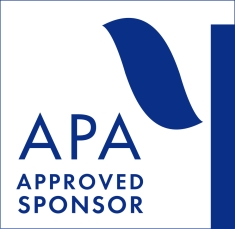Mindful Self-Compassion and Compassion for Others: An Essential Companion to Psychotherapy
REGISTRATION IS CLOSED
Description
No matter what methods or schools of therapy one utilizes in their work with clients-from adolescents to seniors- training in the skills of Self-Compassion and Compassion for others can enhance, expand, and deepen one’s therapeutic tool kit, and thereby lead to more support, better balance, and growth for clients, both in individual and group settings. Utilizing Mindful Compassion practices has been shown to be both trans-diagnostic and trans-theoretical. This mindful application of compassion skills and practices serves both the therapist and the client in their ability to build trust, safety and an evolving and caring resonance in their therapeutic relationship. Throughout this course, we will explore and deepen our understanding of integrating Mindful Self Compassion in psychotherapy, as we deepen our understanding and utilization of Therapeutic Presence, Therapeutic Alliance (including diversity, equity and inclusion) and Therapeutic Interventions to meet the particular areas of a client’s needs. We will explore how one can concretely integrate Self-Compassion into one’s work through the use of specific skills, somatic exercises and both scripted and “in the moment” meditations. Through this lens, we will deepen our understanding of the neuroscience of Self-Compassion and its therapeutic role in working with persons who suffer from depression, anxiety, trauma, shame, eating disorders, addictions and other behavioral challenges.
Learning Objectives
Participants will be able to:
- assist therapists in interweaving the application of Mindful Self-Compassion psychology and practices into one’s current therapeutic modalities.
- describe and facilitate experiential practices in therapeutic presence and compassionate listening to enhance trauma sensitive approaches.
- create for clients specific experiential meditation exercises that enhance emotional regulation during session, as well as for “homework” or “portable therapy” for clients to practice in the daily experiences of their lives.
- assess current research on the neuroscience of self-compassion- its effects on the parasympathetic nervous system and emotional regulation of clients.
- facilitate the therapist’s ability to adapt Mindful Self Compassion practices, meditations, poetry and exercises etc., into their treatments related to shame, depression, eating disorders, addictions, and other behavioral challenges.
Instructor Bio
Ms. Cervelli holds an LCADC, CPS and CCS in addition to a Master's in Special Education. She has worked in both inpatient- for 10 years as the Program Director for a residential treatment program for pregnant women in recovery- as well as outpatient treatment settings, with a special focus on the needs of families affected by alcohol and other substance use disorders.
Currently she works for the Perinatal Addictions Prevention Project at Central Jersey Family Health Consortium, offering training and education on a variety of addiction-related prevention and recovery topics. They offer ongoing trainings to schools, treatment providers, hospitals, social service agencies, drug courts, County Coalitions, Municipal Alliances, Conferences etc., serving both consumers and professional staff.
For the past five years Ms. Cervelli has been studying and teaching Mindful Self-Compassion concepts and practices to both educational and clinical groups, as well as offering these concepts for staff trainings. In 2020, she attended a 36-week intensive program and became certified in “Self-Compassion in Psychotherapy.” This work has become her passion, as she sees how essential the practice of Mindful Self- Compassion and Compassion for Others is, especially in the challenging world we live in today. Neuroscience research confirms that Self-Compassion serves as a comforting and empowering antidote to the many diverse physical, emotional, mental, and traumatic wounds our human family suffers from.
Roseann Cervelli has no conflicts of interest for this program.
Contact Us
For questions, please contact: ce@gsapp.rutgers.edu
Continuing Education Information
Rutgers Graduate School of Applied and Professional Psychology (GSAPP) is recognized by the New York State Education Department's State Board for Psychology as an approved provider of continuing education for licensed psychologists #PSY-0123.
LMFT/MFT and LPC/LAC Licensed in New Jersey: Programs approved by the American Psychological Association are acceptable sources of continuing education credits. Please see https://www.njconsumeraffairs.gov/regulations/Chapter-34-Subchapters-10-31-Professional-Counselors.pdf, Section: 13:34-15.4 APPROVAL OF COURSES OR PROGRAMS on page 27. For all other professional licenses and certifications, please reference your issuing state board regulations regarding reciprocity of continuing education credits.

Rutgers Graduate School of Applied & Professional Psychology is approved by the American Psychological Association to sponsor continuing education for psychologists. Rutgers Graduate School of Applied & Professional Psychology maintains responsibility for this program and its content.
